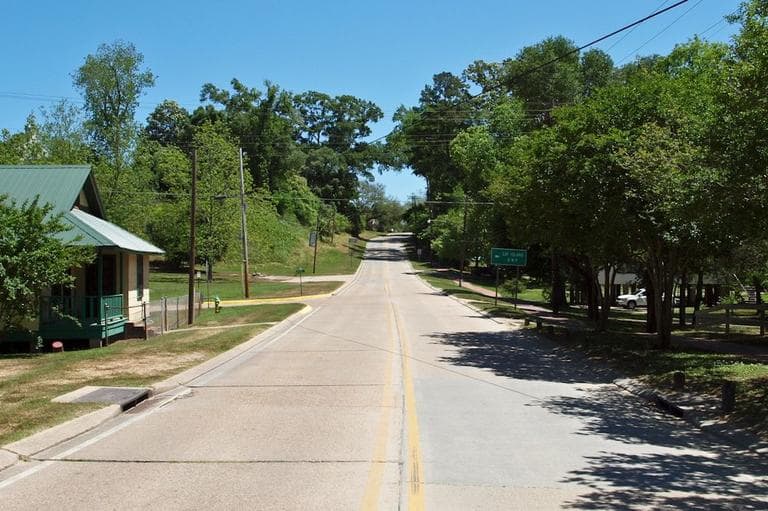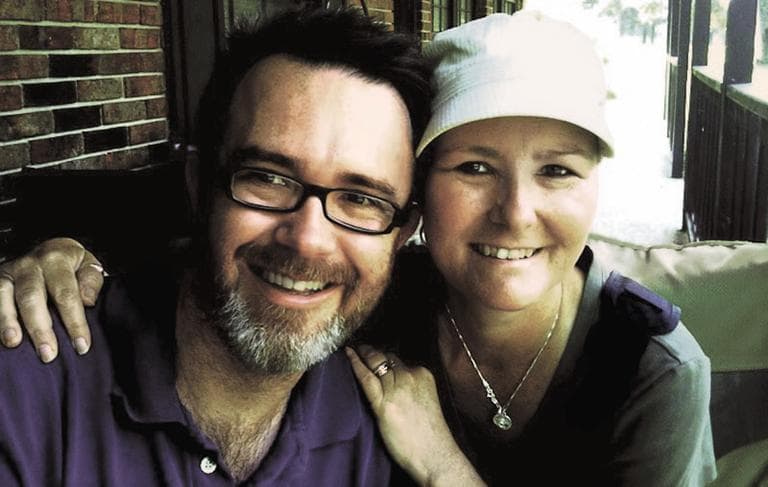Advertisement
Small Town America, Now
ResumeLife in small town America, now. It’s complicated.

Writer and columnist Rod Dreher left his little hometown in rural Louisiana early, and lived all over the country in the course of life and a career.
Then his sister Ruthie got sick, and he went back. Saw how their small town rallied around her - knew her, loved her, lifted her up - when she was in trouble. She had stayed. He had not. And the difference in their connectedness, their community, rocked him.
Rod Dreher moved back. To his small town. That life. And everything it means.
This hour On Point: going home again – the good, the bad, the real - and small town life in the USA, now.
- Tom Ashbrook
Guests
Rod Dreher, author of "The Little Way of Ruthie Leming: A Southern Girl, a Small Town, and the Secret of a Good Life."
Kenneth M. Johnson, senior demographer at the Carsey Institute and professor of sociology at the University of New Hampshire.
From Tom's Reading List
NBC News: Small towns take their lumps after betting big on coal energy plant -- "Illustrating the hazards of dabbling in the complex and unforgiving U.S. energy market, a handful of cities and towns in the Midwest and beyond are absorbing a financial beating after betting big on an innovative coal-fired power plant shortly before the current domestic oil and natural gas boom hit its stride."
The Atlantic: Should Millennials Feel Guilty for Leaving Their Small Towns Behind? -- "As a 20-something escapee of a small Midwestern town, I found myself sinking into my seat as I watched last winter’s dark comedy hit Young Adult. In the film, Charlize Theron plays a bitingly cruel young adult fiction ghost writer, Mavis Gary, who makes a spectacularly ill-fated return to her hometown that ends with a bitter tirade aimed at her former high school classmates. Say what you will about entitled, lazy Millennials. But there’s at least a small subset of young, small town refugees who feel nothing but awe and gratitude that we were able to follow our dreams beyond the ‘burbs."
Book Excerpt

From "The Little Way of Ruthie Leming: A Southern Girl, a Small Town, and the Secret of a Good Life."
There are better ways to see America than from the cab of a twenty-six-foot Penske rig, but that’s how I rolled home the week before Christmas. Julie and the kids corkscrewed themselves into her jam-packed minivan, while our dog Roscoe and I commandeered the big truck. The last time I’d driven a truck between the Atlantic seaboard and St. Francisville I was twenty years younger. By the time we crossed the Maryland state line, my back could tell the difference.
I hadn’t been sleeping well in the nights leading up to the move. One night, just before dawn, I dreamed that I was standing in the living room of our Philadelphia apartment, surrounded by boxes, wrapping paper, and all the accoutrements of our impending move. I heard the door open downstairs and someone walking up the stairs. It was Ruthie. She was wearing a white sweater with a collar gathered close around her neck, and carrying a tin of muffins.
“I thought you were dead!” I said.
“Oh, I am,” she said sweetly. “I just wanted to tell you that everything is going to be all right.”
“Thank you for saying that. Will you stay for a while?”
“No, I need to get on back.”
Then I woke up. The dream had been unusually vivid, far more intense than usual. When I woke up I wasn’t sure if I was still inside the dream or not.
At breakfast I told Julie about the dream. “Of course she brought muffins,” Julie said. “That’s just like Ruthie.”
“Maybe it really was her,” I said. “But I know how much I need to believe everything is going to be okay down there. I might have imagined it. I probably imagined it.”
Matthew stumbled out of his room and trudged to the kitchen for breakfast in his groggy morning manner. When he heard us talking about a dream, he said, “The weirdest thing happened in my room last night. I woke up and felt someone in the room with me, sitting in the chair next to my bed.”
“Who was it?” I asked.
“I don’t know. I was facing the wall, and was too scared to turn over and see.”
“Did the presence feel threatening?” I asked.
“No,” he said. “It was just watching me.”
“I think that was Aunt Ruthie, checking on you,” I said, and told him what had happened to me during the night.
I kept the dream front to mind as we completed packing. Ruthie’s consoling message remained with me as I bucketed southward, through Chattanooga, Birmingham, and Meridian. I was excited about the new adventure, but also anxious about the challenges. Would we be able to give Mike and the girls what they needed? Would Mam and Paw, reeling from the loss of their daughter, expect more from their son than he could give? Would my children become the collateral damage from my putting romantic notions about community to the test?
Matthew, our eldest, was about to become a teenager, and though he and I are so much alike, our relationship wasn’t what it needed to be. Though I had struggled through my early teen years with my father’s impatience and disapproval, I was on track to repeat some of his mistakes with my son.
“Ruthie always thought you were too hard on Matthew,” My wife, Julie, had reminded me as we were packing boxes one day.
Lucas? He would be fine. At seven it was hard on him to leave his Philly friends, but he was keen to live in West Feliciana, around family and the outdoors. Nora was more difficult to read. She turned five a month after Ruthie died. She didn’t seem to understand what leaving Philadelphia for St. Francisville would mean. All she could think about was how she would get to see her grandparents all the time, and now, finally, she would have girl cousins to play with whenever she liked.
Julie’s was a harder case. She agreed to marry me for better or worse, and my career peregrinations had usually been a winning proposition for her. Leaving Dallas, our church community, and her backyard garden had beenpunishing, but she landed on her feet in Philly, and threw herself into working with and teaching in the classical homeschool co-op. Julie discovered that she had a real gift, indeed a passion, for teaching grammar. She was so good at it, in fact, that the national classical homeschooling organization with which our co-op was affiliated asked her to travel around Pennsylvania conducting workshops for homeschool teachers. This gratified Julie immensely, and gave her a sense of self-confidence that she had never had.
Now I was asking her to put all that aside and move to my hometown, where all my difficult emotional baggage was stored.
This program aired on July 5, 2013.